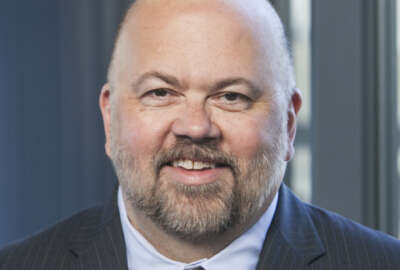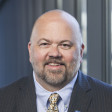
7 things federal workers should watch in 2016
With a new year, there will be developments that every federal worker should follow as they play out. Jeff Neal, senior vice president of ICF International, lists...
This column was originally published on Jeff Neal’s blog, ChiefHRO.com and was republished here with permission from the author.
With a new year, there will be developments that every federal worker should follow as they play out. From retirement to new elected officials, they can have a direct impact on the livelihood of every fed, and it pays to be aware and to take action where it is appropriate. So — here are my top seven:
The stock market

The growth of the Thrift Savings Plan, with more than $440 billion invested (based on the most recent audited financial statement), means federal employees are far more dependent on financial markets for their retirement savings. Analysts are predicting everything from a market correction that drives values down to a “bull” market that drives values way up. Not being a financial expert, I will not make any recommendations other than to be alert, watch the markets and make financial decisions based on knowing what is happening. I am always surprised by people who tell me that they do not know where their TSP money is invested. With the Federal Reserve making its first interest rate increase in more than 9 years, there could be a significant impact, up or down, on the markets that drive much of the value of many TSP accounts.
Cybersecurity
The federal government’s focus on cyber is going to continue in 2016. That can affect federal employees in a lot of ways. User IDs and passwords will continue to be eliminated in favor of more secure login methods, agencies will insist on better security measures in new systems, inspectors general will pay more attention to cyber and contractors will most likely be held more accountable for security in new contracts. Another aspect of the cyber focus that may not be as apparent, but may affect a lot more people, is its effect on other lines in agency budgets. With federal spending unlikely to see significant increases any time soon, agencies that need to invest more in cybersecurity are going to be looking for bill payers — other lower priority or less politically sensitive accounts that can provide money for the cyber push. Agencies will also continue looking for new cybersecurity talent. No agency wants to be in the next big cybersecurity breach headline.
Firing Feds Faster
The issue of federal job security and the perceived nearly impossible process for firing federal workers is going to continue to make news. I wrote about the issue last summer and believe it is still too politically beneficial for proponents of more firing to back off. Those who want to fire more people are looking for different ways to weaken civil service protections and there is no reason to believe they will stop. While there are senators and representatives who have deeply held convictions on the matter, the truth is a lot of them are going to respond to what they hear from constituents. Whether you believe more firings would be a good thing or a bad thing, it is worth paying attention to what happens on the Hill and letting your senators and your representative know what you think.
Defense Workforce Cuts
The Department of Defense comprises almost 40 percent of the federal workforce, so anything that happens to DoD is big news. A recent Government Accountability Office report says, “Because DOD’s focus has been on making and reporting on FTE reductions, DOD and Congress lack information on the extent to which the reductions will achieve savings, and DOD may risk falling short of the statutory requirement for cost savings in the civilian workforce.” Simply stated, the report says DoD may not be making big enough cuts and may need to do more. Even many supporters of increased Defense spending believe there are too many civilian employees in DoD. That makes support for more workforce cuts a real possibility.
Shared Services
There is a continuing push for agencies to look at shared services for human resources, information technology, procurement and other common functions. The case for shared services is fairly simple — it generally saves money. With more than 160,000 employees just in those three areas and more in finance and other potential candidates for shared services, it is easy to see why agency leaders may be drawn to them as a potential means of cutting costs and potentially improving services. Some agencies, such as the Defense Logistics Agency, have had great success with shared services, while others have struggled. The potential for savings and service improvements make it likely we will see even more attention paid to this issue in 2016. It is worth watching for almost everyone in the federal government. If you are not an employee of one of the shared service functions, you are almost certainly a customer of one. That means it will affect you one way or another.
The Election
No list of what to look for in 2016 is complete without mentioning the election. In 2016, we will vote (you will vote, won’t you??) for all 435 members of the House of Representatives, 34 Senate seats, and one President and Vice President. For most of them, the election will not be won or lost based on the views of the federal workforce, but that does not mean federal employees, their pay and benefits, and their jobs will not be in the crosshairs. Proponents of smaller government tend to use the federal workforce as a proxy for the government. That means they will make proposals to cut the number of employees, weaken civil service protections, curb pay increases, cut retirement and other benefits, and more. Proponents of the federal workforce will propose pay increases, better training and increases to program budgets. Just because someone is a federal employee, that does not mean they will automatically be in favor of the pro-federal worker candidates. Whatever your political point of view, the election is most likely the story of the year and you should vote for the candidate who best represents your point of view. Vote. Vote. Vote. (But only once, please).
The Unknown
I could add more items to my list and I am certain my readers could come up with lists that include even more stories that may affect the federal workforce in 2016. What we cannot do is address the unknown. Every year there are stories that no one predicted. Whether they are man-made tragedies like terrorist attacks, acts of god like storms and fires, or ideas that take hold and spread quickly, they always happen and drive public policy in some way.
Whatever happens in 2016, I appreciate the readers who have kept this blog going and motivated me to continue writing every week. I wish all of you a happy, prosperous and safe 2016!
Jeff Neal is a senior vice president for ICF International and founder of the blog, ChiefHRO.com. Before coming to ICF, Neal was the chief human capital officer at the Department of Homeland Security and the chief human resources officer at the Defense Logistics Agency
Copyright © 2025 Federal News Network. All rights reserved. This website is not intended for users located within the European Economic Area.



